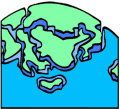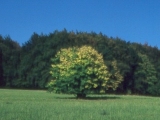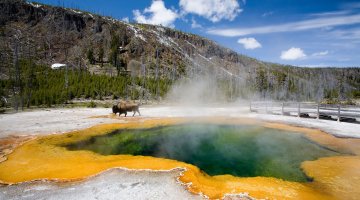Buoyancy is the upward force that keeps things afloat. When placed in water, an object will float if its buoyancy is greater than its weight. And it will sink if its weight is greater than its buoyancy. Learn more about …[Continue]
Plate Tectonics
Plate tectonics theory, formulated in the 1960s and 70s, states that the Earth’s outer crust is composed of moving plates. For example, two hundred million years ago there was only one super continent named Pangaea. Plate tectonics also explains how …[Continue]
Water Cycle
A glass of water doesn’t seem very complicated. Yet water can be a fascinating topic, full of opportunities for hands-on learning. Today’s sites includes dozens of activities and experiments for the young and curious ready to learn about the exciting …[Continue]
Trees
Arbor Day is a national holiday that encourages tree planting and tree care. First celebrated in Nebraska in 1872, National Arbor Day is now observed annually on the last Friday in April. It is an opportunity to learn about the …[Continue]
Tide Pools
The best time to view the many creatures that live along a rocky shore is during low tide, when pools of water and animals become trapped in the rocks. When climbing along the tide pools, take care not to harm …[Continue]
Yellowstone National Park
Yellowstone National Park in northern Wyoming, our country’s first National Park, is known for its spectacular geothermal wonders: mud pots, steam vents, hot springs, and roaring geysers. Every year the park accommodates more than four million visitors, yet it remains …[Continue]
Earthquakes
As a Californian, my life has been punctuated by earthquakes. My earliest temblor memory is the 1971 Sylmar quake. On that auspicious day I began my first job as a high school graduate. In the 1994 Northridge earthquake, my mother …[Continue]
Biomes
Biomes are the world’s major ecological communities, classified by climate and native plants and animals. Some scientists divide the world into hundreds of biomes. Others use groupings of five or six major biomes. Although there is little agreement among scientists …[Continue]
Fossils
A fossil is a window into the history of our world, providing clues about plants and animals that lived thousands or millions of years ago. And because fossils are fairly easy to find, many kids and grownups enjoy the sleuthing …[Continue]
Acid Rain
Tales of rain drops that remove the color from automobiles sound like science fiction, but unfortunately are not. The good news is the problem of acid rain (or more accurately acid deposition) can be curbed by simple steps of conservation. …[Continue]








